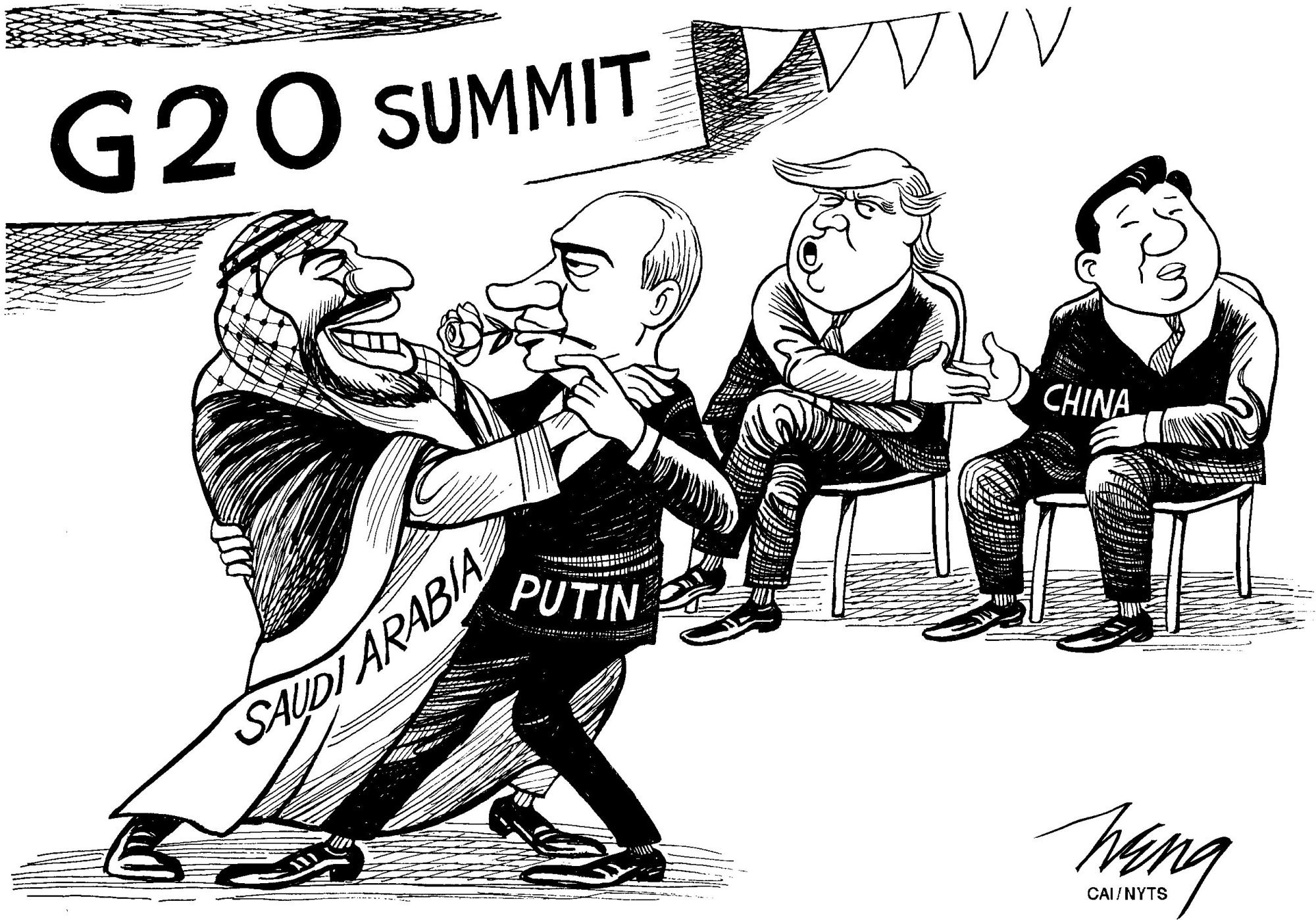World leaders heading home after the weekend G20 might be justified in breathing brief sighs of relief. Unlike at the Asia Pacific Economic Cooperation summit two weeks ago, the heads of state were able to agree on a joint communique. A landmark meeting between U.S. President Donald Trump and Chinese counterpart Xi Jinping was claimed a success by both sides, avoiding further escalation of their trade war — at least for now.
Those broadly positive headlines, however, are only half the picture. For all the efforts to keep it on track, the meeting in Buenos Aires also served to showcase an alarming rise in the number of international differences. From French President Emmanuel Macron squaring up against Saudi Arabian Crown Prince Mohammed bin Salman to Trump snubbing Russian President Vladimir Putin, a growing number of leaders appeared openly hostile or dismissive of each other. The primary diplomatic breakthrough of the summit — a joint declaration to reform the World Trade Organization — may simply be a precursor to more arguments. While most nations do want changes at the World Trade Organization, U.S.-China tensions make it unlikely there'll be agreement on how to do so.
Pointedly, a forum designed as one of the world's leading venues for international diplomacy struggled to get the word "multilateralism" into the communique for fear of offending leaders such as Trump. Much of the diplomatic effort, insiders said, revolved around avoiding growing taboos of major countries, particularly the United States and China. (The eventual communiqué managed a reference to the "multilateral trading system" but followed it by stressing the need for reform at the request of U.S. negotiators.)



















With your current subscription plan you can comment on stories. However, before writing your first comment, please create a display name in the Profile section of your subscriber account page.